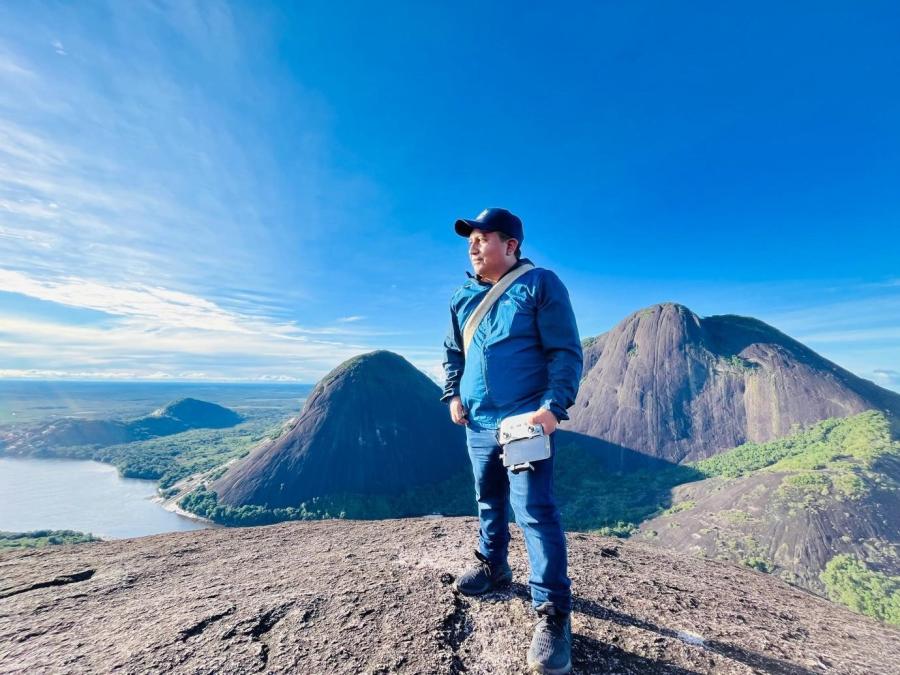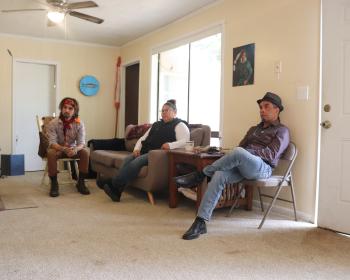
Smoke rises and blends with wispy clouds in the Nuyapalø valley in the Guambía Reserve outside of Silvia, Cauca, Colombia. Within the circular Tulpa, or Casa de Pensamiento (Thinking House), corn and dream catchers hang over perpetually smoldering logs. The Misak Peoples are just over one percent of Colombia’s Indigenous population, and the vast majority live in the Guambía Indigenous Reserve. Within the reserve lies the Las Delicias Botanical Garden Association, a nonprofit founded in 1999 by Misak people, neighboring farmers, and allies interested in safeguarding biodiversity.
What started as an environmental effort has expanded in line with the Misak community’s focus on life as a tejido (weaving) to recuperate their culture by adapting conocimiento propio (Traditional Knowledge) of their systems of spirituality, food, medicine, education, and the economy, to the present. Edier Muelas Calambás, the grandson of the project’s co-founder, explains, “ The Botanical Garden| is a living nature school that helps us move toward el buen vivir (good living), which means to be in harmony with each person, the territory, and all of the spirits.”
The Misak people are Children of the Water. They have been in this region of what is now Cauca, Colombia long before it was known as such, born from the four lagoons that spring from the Páramo Las Delicias alpine tundra ecosystem. Misak cosmology is rooted in a profound connection with their ancestral territory; their higher power is the Piishímisak Kallim, the spirit of nature. The Misak community is well regarded across Latin America for their focus on transferring ancestral wisdom to the younger generations. Las Delicias Botanical Garden is pioneering this effort by recovering the practices that were nearly lost as a result of the region’s tragic history, beginning in 1535 with the Spanish conquest. Enduring centuries of oppression from colonial landholders, the community was forced into slavery within a feudalistic system through the1960s. Sabedora propia (traditional healer) Mamá Luz says, “The colonizers arrived, they treated my grandparents poorly; they called them Indios, they destroyed native plants and created a slavery system. My grandfather had to spend four days working for the patrón (landholder), and only had one day to work his land.”
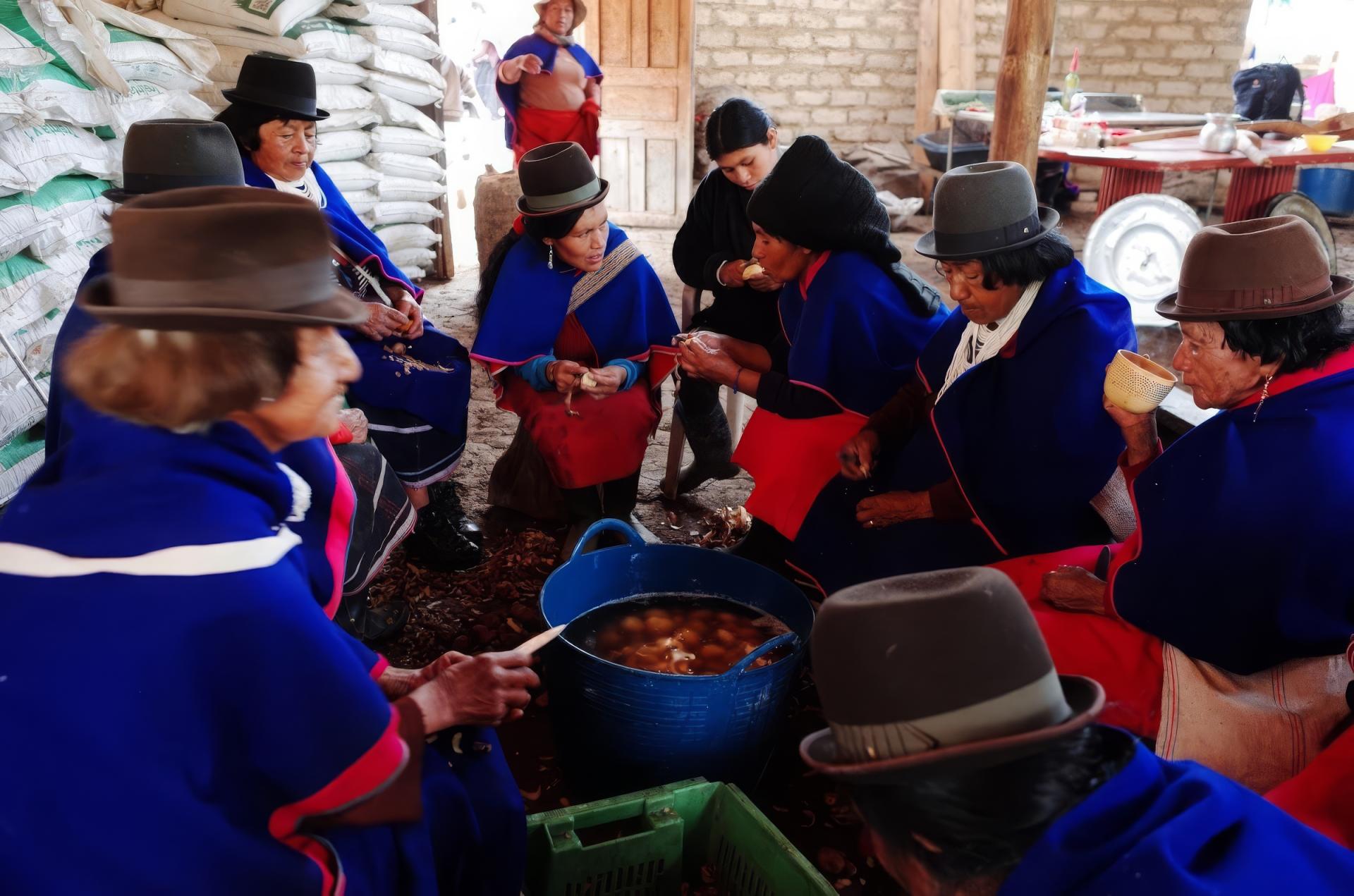
All photos courtesy of Las Delicias Botanical Garden.
The ability to reside on and steward the biodiversity of ancestral land is fundamental to the Misak people’s ability to connect with their cosmology. Lorenzo Tumiña Calambás, coordinator of Las Delicias Botanical Garden, explains, “there was a war on this land against colonizers. Many people died, and we were able to recuperate the territory through our organizational power.” Calambás’ grandfather, Javier Calambás, repurchased their farm in San Fernando in 1963, creating a model for the recuperation of Indigenous territories across all of Colombia. “As a result of their efforts,” Edier explains, “we have generations focused on protecting our territories and taking care of the Traditional Knowledge of Indigenous communities.”
Between 1990 and 2005, much of the Guambía territory became embroiled with opium poppy cultivation, leading to armed conflict in the region. As a result of aerial spraying, Edier recalls that “the community faced a food crisis because glyphosate killed many plants and seeds and tainted our water supply.” Former Misak governor, Floro Tunubalá, transitioned the regional economy from opium poppy cultivation to pisciculture. Today there are approximately 550 rainbow trout stations in the Guambía Reserve, which have other environmental consequences, including the loss of native river fish species and water contamination.
Along with transforming the land, the colonizers forced their religion, health system, education, and economy on the Misak people. According to the grandson of the Botanical Garden’s co-founder, Edgar Muelas Calambás, “Our biggest issue locally is how western influence has changed the dynamics within our community—to our health, education, and economy. This changes our way of life and way of thinking to be more individualistic, which debilitates our connection with our territory. That causes harm to our forests, because some people treat nature like it doesn’t matter. In medicine, more and more pills are arriving and people take trips to the hospital, which decreases our use of our knowledge of medicinal plants. In our educational system, religious influence has changed our way of thought. We are fighting to maintain our knowledge through educación propia (traditional education) as a means of strengthening all other practices of our society.”
The Las Delicias Botanical Garden Project
The Las Delicias Botanical Garden project began in 1999 with the purchase of a 70-hectare land parcel in the cloud forest of Riosucio. Between 2000 and 2004, the project was abandoned due to armed conflict in the area. The Colombian military bombed the forest, creating craters the size of city blocks. The founders of the Botanical Garden project were displaced from the territory and received threats that forced them to focus on individual survival, rather than communal development.
The violence nearly ended the Las Delicias Botanical Garden project as forest restoration activities became too dangerous. Years later, the younger generation took over and shifted the project’s focus. Edier says, “Originally, in 1999, the project was only focused on ecological conservation. But when we reactivated in 2016, we wanted to incorporate the cultural values of the cosmology of the Misak people. We started organizing meetings with shures and shuras (Elders) around the fire in our Tulpa to consider the problems we’re facing, like the contamination of our territory and the loss of our knowledge system. This pushed us to reflect on what we can learn from the old ways of life. We started to reconsider our Misak culture and to strengthen it through the Botanical Garden project.”
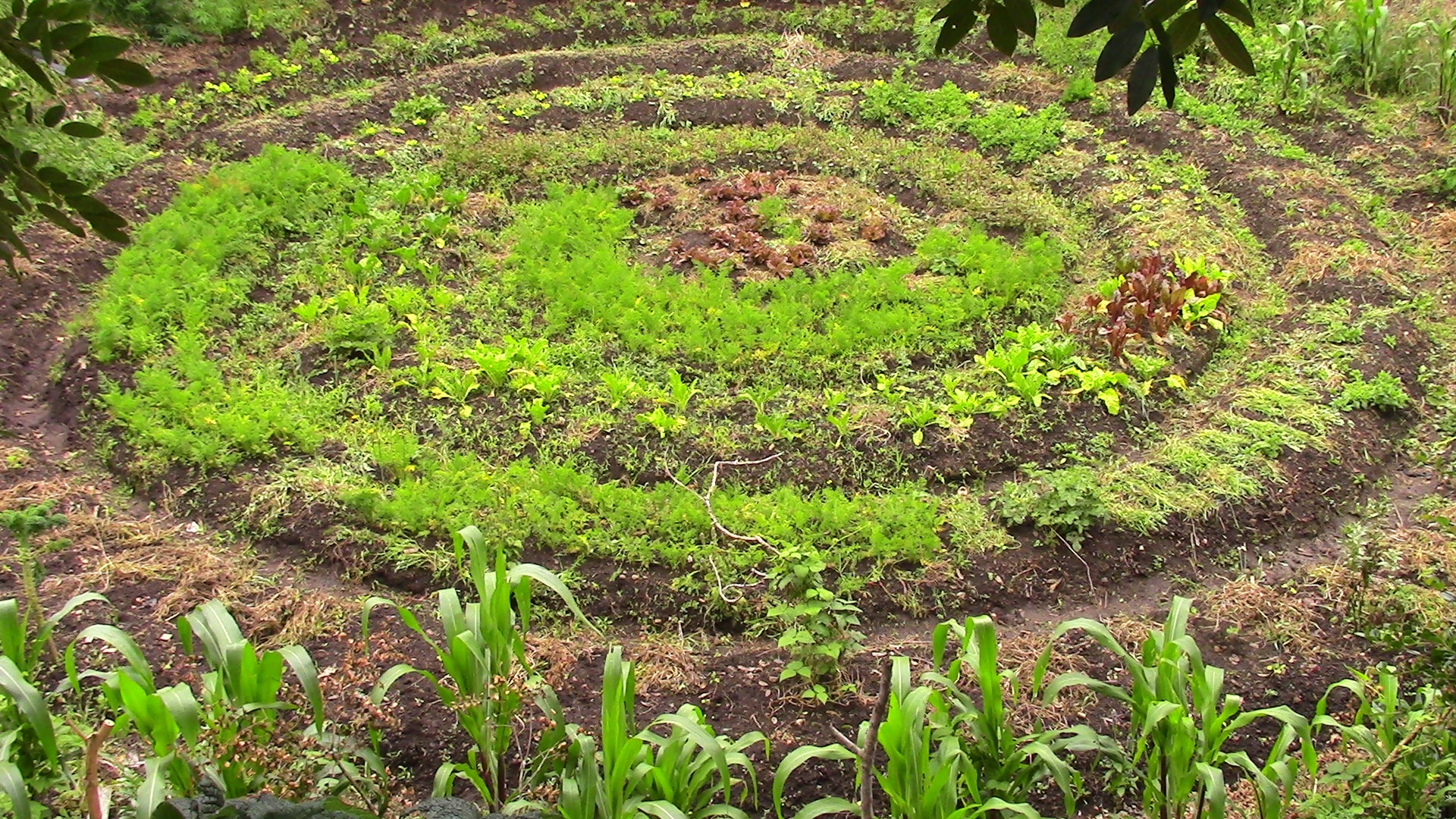
Indigenous communities’ role as stewards of global biodiversity has been under-acknowledged and undervalued for centuries. Colombia’s national legal system, developed by colonizers using a western legislative model, challenges the Misak community’s ability to gain formal recognition of their efforts. Being listed as an “environmentalist territory” or included in the national Network of Botanical Gardens could protect their land from industrial resource extraction and provide a stable income. However, the technical requirements to enroll are cost prohibitive.
Organizers of the Yell Ya communal seed house, supported by the Keepers of the Earth Fund, want to commercialize their seeds to expand native seed varieties, preserve genetic diversity, and earn additional income for the community. However, Edier explains, “in order to have the ability to commercialize our seeds, we would need a very technical registry. [This legal barrier] ignores the communal wisdom we were taught by our ancestors about how to care for native, clean seeds.”
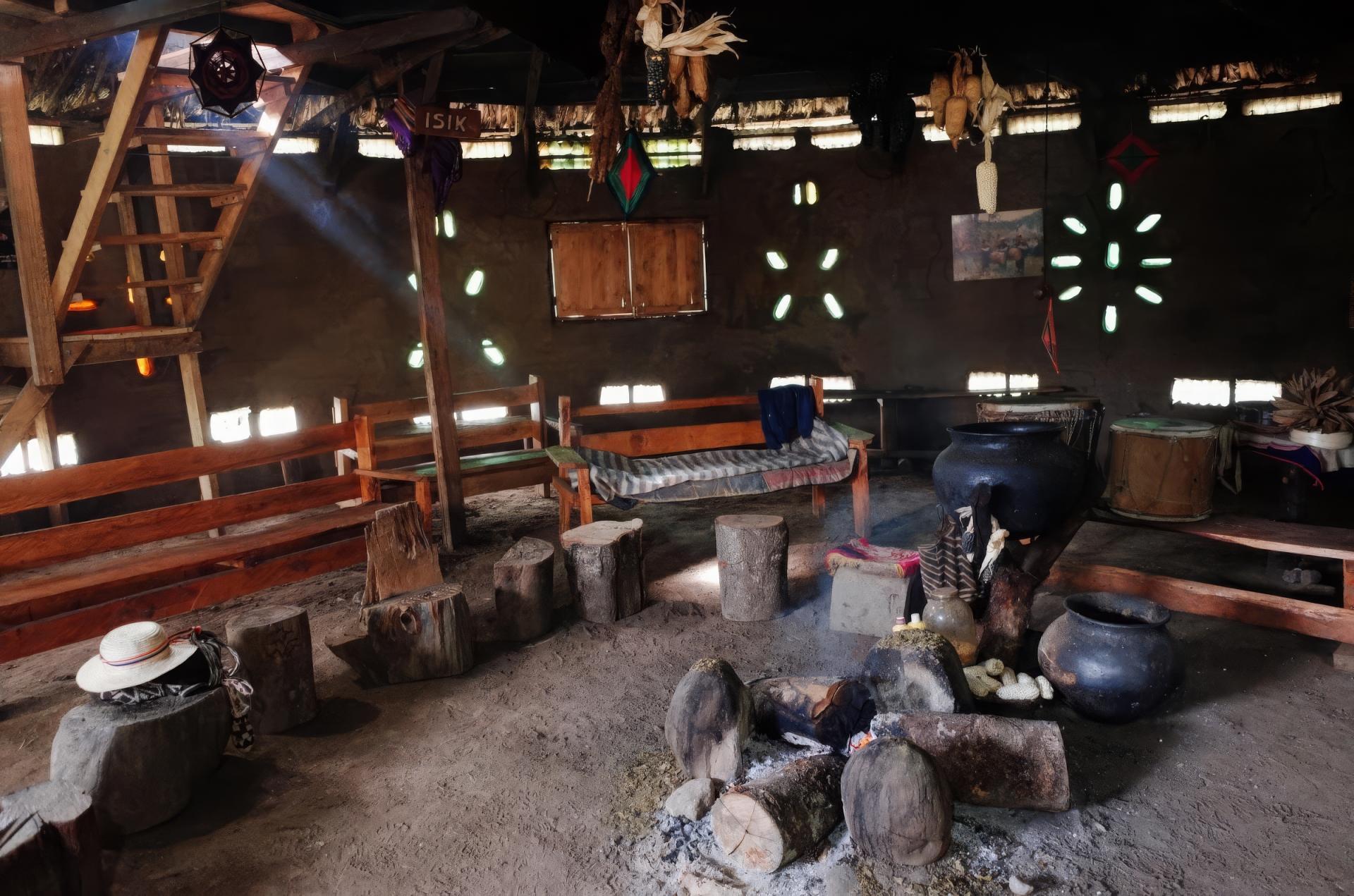
The Misak community’s conocimiento propio is oriented around protecting nature while incorporating western science to bolster their efforts. Edier says, “science and conocimiento propio form a tejido that considers the life of all the plants, animals, nature, and humans without separation. Indigenous Peoples’ fight to be recognized for having their own science used for societal development is political. Our knowledge isn’t far from western science. We need space in government, ministries, and territorial administration without a barrier against our knowledge.”
Resistance against colonial oppression can take many forms. As a result of the Las Delicias, students study their native language, Namuy Wam. The local school teaches a curriculum based on the Misak Cosmovision, and native seed conservation is revitalizing the traditional food system and use of herbal medicine. The Las Delicias Botanical Garden has superseded the boundaries of a conventional “garden” project. The community members have created an alchemy of knowledge systems that use Misak cosmology to face the modern challenges of nutritional insecurity, economic instability, language extinction, biodiversity loss, and climate change. “We’re trying to take the Traditional Knowledge of our grandparents and put it in the present while evolving and replicating it. We are focused on keeping the essence of being Indigenous alive,” Lorenzo says.
In 2020 and 2023, Las Delicias Botanical Garden received a Keepers of the Earth Fund (KOEF) grant to support their work.

